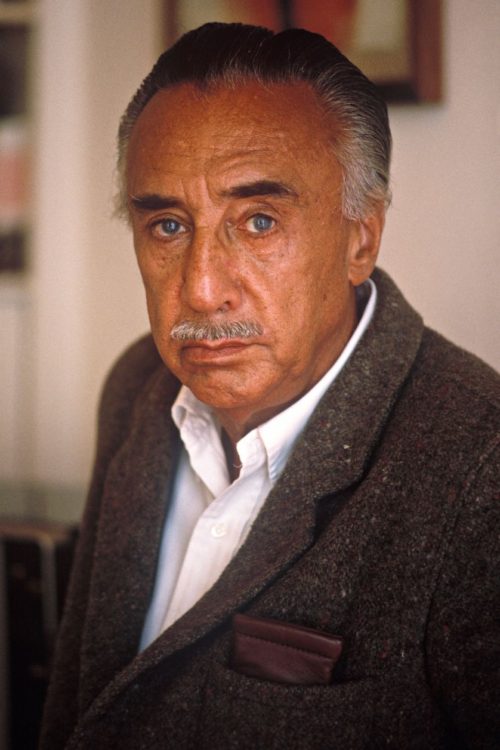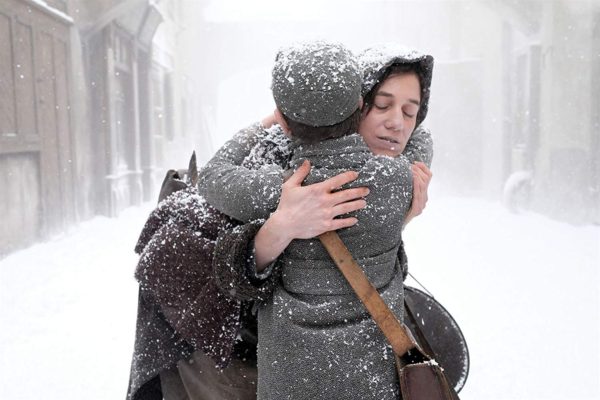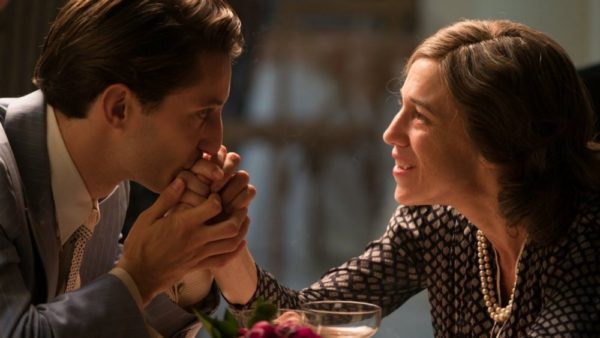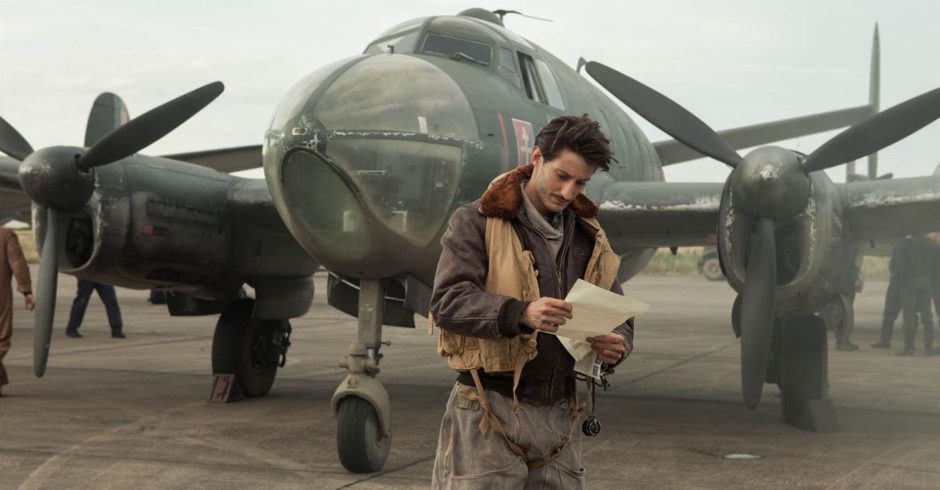Eric Barbier’s biopic of the late French novelist and diplomat Romain Gary, Promise at Dawn, is filled with a succession of melodramatic moments befitting his intense and picturesque life. Based on his eponymous best-selling autobiographical novel, it unfolds mainly in Poland and France — where he was formed as a boy and a man — in a series of strong and mostly affecting vignettes.

The film, which opened in U.S. theaters last week, dwells not only on Gary, but on his loving and passionate mother, Nina Kacew, a former Russian Jewish actress and milliner who devoted herself selflessly to her son. References to his father are oblique. As a silent movie clip suggests, he may have been a famous and flamboyant Russian actor, to whom Gary bears a striking resemblance.
Promise at Dawn takes place mainly between 1924 and 1944 and focuses primarily on his development as an ambitious, hard-working young man who always sought to please his mother. It starts with a dramatic scene in Mexico, where he began writing his novel, a paean to his mother, a driven and eccentric woman who believed he was destined for greatness and fame.

Nina (Charlotte Gainsbourg), a single mother, constantly copes wth adversity. Polish police raid Nina’s flat, accusing her of dealing in stolen goods. As she loudly protests, they smash her sewing machines, the keys to her livelihood. Unbowed by the damaging intrusion, she hires a down-and-out alcoholic French actor to publicize her chic new fashion house, which attracts a wealthy clientele from day one. Gainsbourg, never less than lively and energetic, is quite impressive as Nina.
Being a model Jewish mother, Nina suffocates Romain with incessant affection. Indeed, he’s at the center of her very existence. A francophile, she predicts he will be a French diplomat and writer one day. “You’ll be Victor Hugo,” she exults in a reference to the acclaimed French novelist.

Always dispensing pearls of wisdom, she advises him that women, honor and France are the three things worth fighting for. It’s advice that the impressionable Gary takes to heart. Gary, in his formative years, is aptly portrayed by Pawel Puchalski and Nemo Schiffman.
In the meantime, Gary and Nina must deal with outbursts of antisemitism. Polish ruffians call him as a “Yid,” while a haughty and hypocritical rich Polish woman dismisses Nina as a grasping Jew after she refuses to pay financially-strapped Nina for dresses she bought at her shop. The last incident, which leaves an extremely bad taste in her mouth, is the last straw for Nina. She and Gary, fed up with the prejudices and arbitrariness of Polish society, leave Poland for good, catching a train bound for Nice, the French Riviera resort. In a scene encapsulating their joy, they grow almost giddy as they glance at the shimmering Mediterranean Sea, a symbol of renewal and vitality.
Nina, in Nice, finds employment as a seller of antiques and a food market trader, while Gary loses his virginity to his mother’s gymnastic housekeeper. Tired of Nina’s smothering mothering, Gary urges her to date Zaremaba (Jean-Pierre Darroussin), a Polish painter who has a crush on Nina, so that he can at last grasp the reins of freedom and independence. In the meanwhile, Gary begins writing short stories for newspapers under a pseudonym, much to Nina’s delight.

Before he leaves Nice to study law in Paris, Nina gravitates to Christianity. Once in the French capital, Gary has a brief but torrid affair with a beautiful Swedish visitor.
The film moves along at a brisk pace. In a quirky request so typical of her mindset, Nina implores Gary to assassinate Adolf Hitler in Berlin. Back in France, Gary is drafted into the air force, but due to antisemitism and xenophobia, he fails to receive an officer’s commission. Much to his further disgust, his roommate turns out to be a Jew hater who flashes a lurid copy of the Protocols of the Elders of Zion.
In quick succession, Gary (portrayed with elan and gusto by Pierre Niney from this point onward) joins the Free French forces in London, fights a pistol duel with a Polish officer, is posted to Africa, catches typhoid fever in Libya, serves as a bombardier for the Royal Air Force in Nazi-occupied France, receives a military decoration for valor, learns that his novel, A European Education, will be published in Britain, and returns to Nice in the hope of being reunited with his mother.
Promise at Dawn, ably directed by Barbier, artfully recreates Gary’s world and delivers the goods without fuss or bother.
